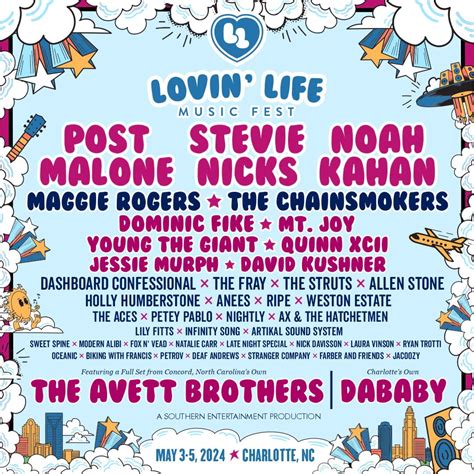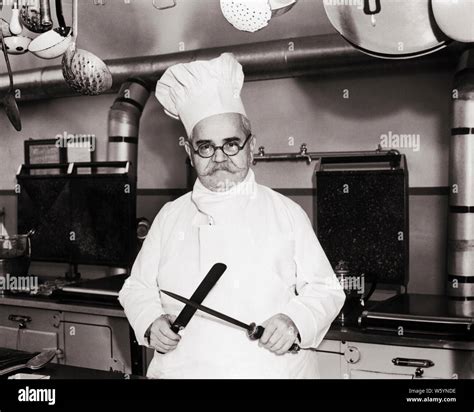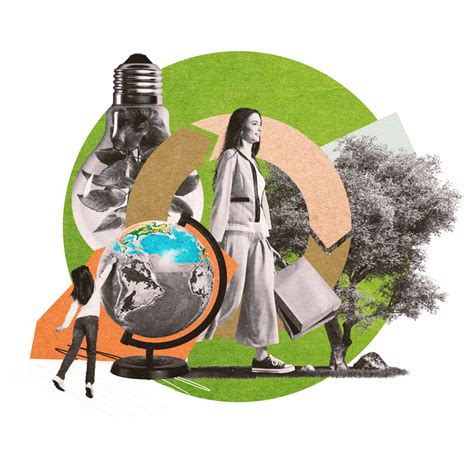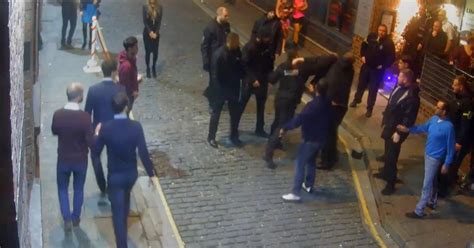
With summer approaching, music enthusiasts across the United States are gearing up for a season of unparalleled live performances as a vibrant array of music festivals prepares to unfold, offering over 20 epic events spanning diverse genres and catering to a wide range of musical tastes.
From coast to coast, the U.S. music scene is set to ignite with a diverse selection of festivals that promise unforgettable experiences for attendees. These events, which feature a mix of established headliners and emerging artists, provide a unique opportunity to immerse oneself in the energy and excitement of live music. “Music festivals are a great way to experience live music, discover new artists, and create lasting memories,” notes a spokesperson from one of the featured festivals. With options ranging from intimate gatherings to large-scale productions, there’s a festival to suit every preference and budget.
A Diverse Tapestry of Musical Offerings
The spectrum of music festivals scheduled across the United States reflects the country’s rich musical heritage and contemporary innovations. Whether you’re a fan of rock, pop, country, electronic dance music (EDM), hip-hop, jazz, or indie, there’s a festival tailored to your specific tastes.
For rock aficionados, festivals such as “Welcome to Rockville” in Daytona Beach, Florida, offer a high-octane experience featuring some of the biggest names in the genre. Country music lovers can head to events like “Stagecoach” in Indio, California, which brings together top country artists and rising stars for a weekend of twang and good times.
Electronic music fans will find their haven at festivals like “Electric Daisy Carnival (EDC)” in Las Vegas, Nevada, a vibrant celebration of EDM culture complete with dazzling light shows, immersive art installations, and world-class DJs. Hip-hop heads can flock to festivals like “Rolling Loud,” which takes place in various locations across the country, showcasing the genre’s biggest names and up-and-coming talent.
Indie music enthusiasts can discover new favorites at festivals like “Pitchfork Music Festival” in Chicago, Illinois, which highlights the best in independent and alternative music. Jazz aficionados can immerse themselves in the sounds of legendary musicians and contemporary innovators at festivals like the “New Orleans Jazz & Heritage Festival” in New Orleans, Louisiana.
Featured Festivals: A Closer Look
Among the many noteworthy music festivals taking place this year, several stand out for their unique offerings, star-studded lineups, and overall immersive experiences. Here’s a closer look at some of the top-rated events you won’t want to miss:
-
Welcome to Rockville (Daytona Beach, Florida): This rock festival is a must-attend for fans of hard rock and heavy metal. With a lineup featuring iconic bands and emerging artists, “Welcome to Rockville” promises a weekend of headbanging and high-energy performances.
-
Stagecoach (Indio, California): As one of the premier country music festivals in the United States, “Stagecoach” brings together top country artists and rising stars for a weekend of twang and good times. In addition to the music, the festival also offers a variety of food and beverage options, as well as interactive experiences.
-
Electric Daisy Carnival (EDC) (Las Vegas, Nevada): “EDC” is a vibrant celebration of EDM culture, complete with dazzling light shows, immersive art installations, and world-class DJs. This festival is a must-attend for electronic music fans looking for an unforgettable experience.
-
Rolling Loud (Various Locations): “Rolling Loud” is one of the biggest hip-hop festivals in the world, showcasing the genre’s biggest names and up-and-coming talent. With multiple locations across the country, “Rolling Loud” brings the energy and excitement of hip-hop to fans nationwide.
-
Pitchfork Music Festival (Chicago, Illinois): This festival highlights the best in independent and alternative music, featuring a diverse lineup of established artists and emerging talent. “Pitchfork Music Festival” is a must-attend for indie music enthusiasts looking to discover new favorites.
-
New Orleans Jazz & Heritage Festival (New Orleans, Louisiana): The “New Orleans Jazz & Heritage Festival” is a celebration of the city’s rich musical heritage, featuring a diverse lineup of jazz, blues, gospel, and R&B artists. In addition to the music, the festival also offers a variety of food and craft vendors, showcasing the city’s unique culture.
-
Bonnaroo Music & Arts Festival (Manchester, Tennessee): Known for its eclectic lineup and vibrant atmosphere, “Bonnaroo” offers a mix of rock, pop, electronic, and hip-hop music, as well as comedy performances, film screenings, and art installations. The festival is a popular destination for music lovers of all ages.
-
Lollapalooza (Chicago, Illinois): “Lollapalooza” is one of the biggest music festivals in the United States, featuring a diverse lineup of rock, pop, hip-hop, and electronic music artists. With multiple stages and a wide range of food and beverage options, “Lollapalooza” offers something for everyone.
-
Austin City Limits Music Festival (Austin, Texas): This festival showcases a diverse lineup of music artists, ranging from rock and pop to country and blues. In addition to the music, the “Austin City Limits Music Festival” also features a variety of food and art vendors, as well as interactive experiences.
-
Outside Lands (San Francisco, California): Set in Golden Gate Park, “Outside Lands” offers a unique festival experience with a mix of music, food, wine, and art. The festival features a diverse lineup of artists, as well as a variety of culinary offerings and interactive experiences.
Planning Your Festival Experience
With so many amazing music festivals to choose from, planning your festival experience can seem daunting. However, by following a few simple tips, you can ensure that you have a safe, enjoyable, and unforgettable time.
-
Purchase Tickets in Advance: Many music festivals sell out well in advance, so it’s important to purchase your tickets as soon as possible. This will not only guarantee your entry to the festival but also often save you money, as ticket prices tend to increase closer to the event date.
-
Book Accommodation and Transportation: If you’re traveling from out of town, be sure to book your accommodation and transportation well in advance. Hotels and campsites near the festival grounds tend to fill up quickly, so it’s best to secure your reservation as soon as possible. Consider transportation options such as shuttle buses, public transportation, or ride-sharing services to avoid the hassle of driving and parking.
-
Pack Appropriately: When packing for a music festival, it’s important to consider the weather conditions and the activities you’ll be participating in. Be sure to pack comfortable shoes, sunscreen, a hat, sunglasses, and a reusable water bottle. You may also want to bring a backpack to carry your essentials, as well as a portable charger for your phone.
-
Stay Hydrated and Nourished: Music festivals can be physically demanding, so it’s important to stay hydrated and nourished throughout the day. Drink plenty of water and eat regular meals or snacks to maintain your energy levels. Many festivals offer a variety of food and beverage options, so you’ll be able to find something to suit your tastes.
-
Be Aware of Your Surroundings: Music festivals can be crowded and chaotic, so it’s important to be aware of your surroundings and take precautions to protect yourself from harm. Avoid walking alone at night, and be mindful of your belongings. If you see something suspicious, report it to festival security or law enforcement.
-
Respect the Environment: Music festivals can have a significant impact on the environment, so it’s important to do your part to minimize your footprint. Dispose of your trash properly, and avoid littering. Consider bringing reusable water bottles and shopping bags to reduce waste.
-
Pace Yourself: Music festivals can be a marathon, not a sprint. It’s important to pace yourself and avoid overdoing it. Take breaks when you need them, and don’t be afraid to sit down and relax for a while. Remember, the goal is to have fun and enjoy the experience, not to burn yourself out.
Economic and Cultural Impact
Music festivals are not just about entertainment; they also have a significant economic and cultural impact on the communities that host them. These events generate revenue for local businesses, create jobs, and attract tourism. According to a study by the “National Endowment for the Arts,” music festivals contribute billions of dollars to the U.S. economy each year.
In addition to their economic benefits, music festivals also play a vital role in promoting cultural exchange and fostering a sense of community. They bring together people from all walks of life, united by their love of music and shared experiences. “Music festivals provide a platform for artists to showcase their talent, and for fans to discover new music and connect with like-minded individuals,” notes a music industry analyst.
The Future of Music Festivals
As the music industry continues to evolve, so too will the landscape of music festivals. With advancements in technology and changing consumer preferences, festivals are constantly adapting to meet the needs of their audiences.
One trend that is gaining momentum is the integration of technology into the festival experience. From mobile apps that provide real-time information about set times and venue maps to virtual reality experiences that allow fans to immerse themselves in the music, technology is enhancing the way people experience festivals.
Another trend is the growing focus on sustainability. As awareness of environmental issues increases, festivals are implementing eco-friendly practices to reduce their impact on the planet. These practices include using renewable energy sources, reducing waste, and promoting responsible consumption.
“The future of music festivals is bright,” says a festival organizer. “As long as we continue to innovate and adapt to the changing needs of our audiences, festivals will continue to be a vital part of the music ecosystem.”
Navigating the Festival Scene: Tips for a Smooth Experience
Attending a music festival can be an exhilarating experience, but it requires careful planning and preparation to ensure a smooth and enjoyable time. Here are some additional tips to help you navigate the festival scene like a pro:
-
Create a Schedule: Before heading to the festival, take some time to create a schedule of the artists you want to see. This will help you prioritize your time and avoid missing your favorite performances. Many festivals offer mobile apps that allow you to create personalized schedules and set reminders.
-
Stay Connected: In today’s digital age, staying connected is essential. Make sure your phone is fully charged before leaving for the festival, and consider bringing a portable charger to keep it powered throughout the day. Many festivals offer Wi-Fi access, but be prepared for potentially slow speeds due to high demand.
-
Dress Comfortably: Music festivals often involve a lot of walking and standing, so it’s important to dress comfortably. Wear comfortable shoes, loose-fitting clothing, and a hat to protect yourself from the sun. Be sure to check the weather forecast before you go, and dress accordingly.
-
Protect Your Hearing: Loud music can damage your hearing over time, so it’s important to take precautions to protect your ears. Consider wearing earplugs to reduce the volume without sacrificing the quality of the music.
-
Know Your Limits: Music festivals can be a sensory overload, so it’s important to know your limits and avoid overdoing it. Take breaks when you need them, and don’t be afraid to step away from the crowd for a while. If you’re feeling overwhelmed, find a quiet place to relax and recharge.
-
Be Respectful: Music festivals are a community event, so it’s important to be respectful of others. Be mindful of your noise level, and avoid blocking people’s views of the stage. If you’re drinking alcohol, do so responsibly, and avoid causing disturbances.
-
Have Fun! Most importantly, remember to have fun! Music festivals are a celebration of music, art, and community. Let loose, dance, sing along, and create memories that will last a lifetime.
Conclusion
The U.S. music festival scene is thriving, offering a diverse array of events that cater to a wide range of musical tastes. Whether you’re a seasoned festival-goer or a first-time attendee, there’s a festival out there for you. By planning ahead, packing appropriately, and staying safe, you can ensure that your festival experience is one to remember. So, grab your tickets, gather your friends, and get ready to immerse yourself in the energy and excitement of live music. This summer promises a season of unparalleled musical experiences across the United States, with over 20 epic events waiting to be discovered.
Frequently Asked Questions (FAQ)
-
What types of music festivals are popular in the US? The US boasts a diverse range of music festivals catering to various genres, including rock, country, electronic dance music (EDM), hip-hop, indie, and jazz. Some popular examples include “Welcome to Rockville” (rock), “Stagecoach” (country), “Electric Daisy Carnival (EDC)” (EDM), “Rolling Loud” (hip-hop), “Pitchfork Music Festival” (indie), and “New Orleans Jazz & Heritage Festival” (jazz). The diversity reflects the broad musical tastes across the country.
-
How can I purchase tickets for these music festivals, and when should I buy them? Tickets for music festivals can typically be purchased online through the festival’s official website or authorized ticketing platforms like Ticketmaster or Eventbrite. It’s highly recommended to purchase tickets well in advance, as popular festivals often sell out quickly. Buying early not only secures your spot but may also save you money, as ticket prices tend to increase closer to the event date.
-
What are some essential items to pack for attending a music festival? Essential items to pack for a music festival include comfortable shoes (as you’ll be doing a lot of walking and standing), sunscreen, a hat, sunglasses, a reusable water bottle (to stay hydrated), a backpack to carry your essentials, and a portable charger for your phone. Depending on the weather, you may also want to bring a jacket or raincoat. Earplugs are also recommended to protect your hearing.
-
What measures do music festivals take to ensure the safety and security of attendees? Music festivals typically implement a range of measures to ensure the safety and security of attendees. These may include security personnel patrolling the grounds, bag checks at entry points, medical staff on-site to provide assistance, designated safe zones, and clear communication channels for reporting incidents. It’s important to be aware of your surroundings and report any suspicious activity to festival staff or law enforcement.
-
How do music festivals contribute to the local economy and culture of the areas where they are held? Music festivals have a significant positive impact on the local economy by generating revenue for businesses such as hotels, restaurants, and shops. They also create job opportunities for local residents and attract tourism to the area. Culturally, festivals promote the arts and foster a sense of community by bringing together people from diverse backgrounds to celebrate music and shared experiences. They can also serve as platforms for local artists and businesses to showcase their talents and products.









